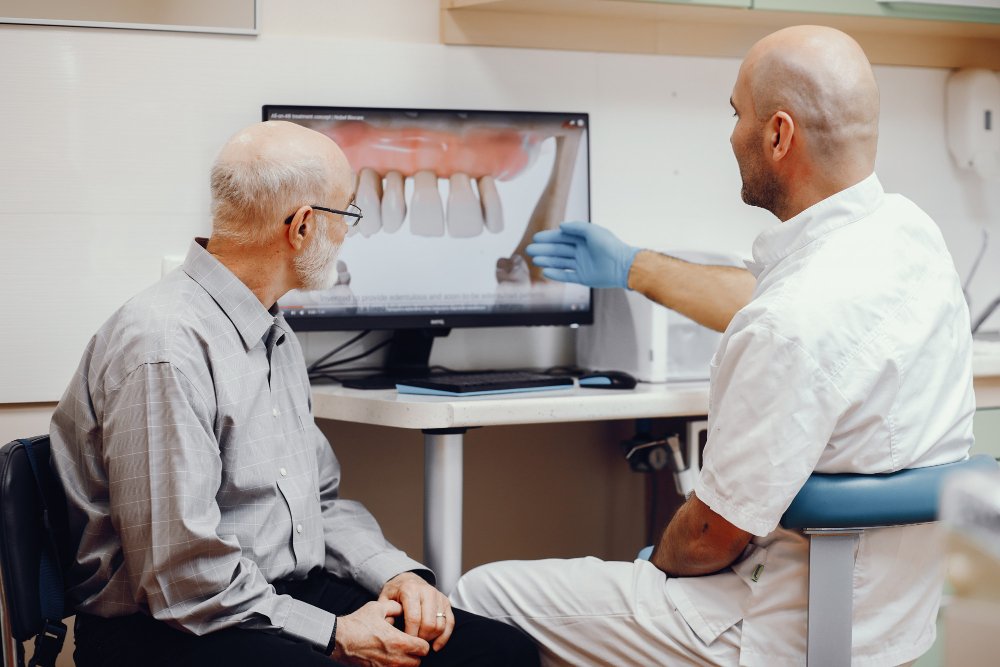Dental implants are a highly effective solution for replacing missing teeth, offering both aesthetic and functional benefits. However, the success and healing time of a dental implant can vary significantly depending on your overall health. Certain medical conditions can slow healing, increase the risk of complications, or even affect the integration of the implant with the jawbone.
In this article, we’ll explore how common systemic health conditions can impact dental implant healing and what you can do to support a successful outcome.
What Is the Normal Healing Time for Dental Implants?
Under ideal circumstances, the healing process for dental implants—called osseointegration—typically takes between 3 to 6 months. During this period, the titanium post fuses with the jawbone, creating a strong foundation for the crown or bridge.
However, this timeline can be extended by certain chronic diseases, immune conditions, medications, or lifestyle factors.
Medical Conditions That Affect Implant Healing Time
1. Diabetes (Especially Uncontrolled)
Impact:
- Impaired wound healing
- Higher risk of infection
- Reduced bone regeneration
Why It Matters: Uncontrolled diabetes can impair circulation and weaken the immune system, both of which are critical for healing. Patients with well-managed diabetes typically do well with implants, but blood sugar levels must be under control before surgery.
Tips:
- Maintain HbA1c below 7%
- Follow a diabetic-friendly diet
- Monitor glucose levels closely post-operatively
2. Osteoporosis
Impact:
- Weakened bone density
- Potential for poor implant integration
Why It Matters: Osteoporosis reduces bone mass, which may compromise the stability of the implant. Additionally, bisphosphonates, a common medication for osteoporosis, can interfere with bone healing and increase the risk of osteonecrosis of the jaw.
Tips:
- Discuss medication history with your dentist
- Bone grafting may be necessary to improve jawbone quality
- CT scans can evaluate bone density preoperatively
3. Cardiovascular Disease
Impact:
- Slower healing due to compromised circulation
- Increased surgical risk
Why It Matters: Heart conditions don’t necessarily prevent implant placement, but they can affect oxygenation and tissue repair. Some medications, like anticoagulants, may also complicate surgery and recovery.
Tips:
- Get clearance from your cardiologist
- Ensure blood pressure is controlled
- Monitor bleeding carefully if on blood thinners
4. Autoimmune Diseases (e.g., Rheumatoid Arthritis, Lupus)
Impact:
- Impaired healing response
- Higher risk of implant failure
Why It Matters: Autoimmune conditions can cause chronic inflammation, impair tissue regeneration, and alter immune function. Additionally, immunosuppressive drugs may hinder the body’s ability to fight infection.
Tips:
- Collaborate with your rheumatologist
- Plan surgery during periods of disease remission
- Practice excellent oral hygiene post-surgery
5. Cancer and Radiation Therapy
Impact:
- Damaged bone and soft tissues
- Poor vascularization, especially after head and neck radiation
Why It Matters: Radiation, especially in the jaw area, compromises blood supply and bone viability, increasing the risk of implant failure and bone necrosis.
Tips:
- Dental evaluation before cancer treatment is ideal
- Hyperbaric oxygen therapy may be considered for better healing
- Delay implant surgery until systemic health stabilizes
6. Chronic Kidney Disease
Impact:
- Disturbed calcium/phosphate balance
- Anemia and impaired immune response
Why It Matters: CKD can lead to weakened bones and altered healing. Patients on dialysis may also have bleeding tendencies and be more prone to infection.
Tips:
- Schedule surgeries on non-dialysis days
- Monitor lab values (especially calcium and phosphorus)
- Preoperative clearance from a nephrologist is essential
7. Smoking and Tobacco Use
Impact:
- Vasoconstriction reduces blood flow
- Increases risk of implant failure
Why It Matters: Nicotine constricts blood vessels, limiting oxygen delivery to the surgical site. Smoking is one of the leading preventable causes of delayed healing and implant failure.
Tips:
- Quit smoking at least 2 weeks before and 8 weeks after surgery
- Use nicotine patches or consult a cessation program
- Inform your surgeon if you use e-cigarettes or chewing tobacco
Medications That Can Delay Healing
Several medications can interfere with healing and osseointegration, including:
- Steroids (Prednisone) – Reduce immune response and tissue repair
- Immunosuppressants – Common in transplant patients
- Chemotherapy drugs – Weaken immune system and tissue regeneration
- Selective Serotonin Reuptake Inhibitors (SSRIs) – May affect bone metabolism
- Anti-resorptive medications (e.g., bisphosphonates, denosumab) – Can impair bone turnover
How to Support Healing Despite Medical Conditions
Here are general strategies to promote optimal healing:
✔ Medical Clearance
Always get a full medical evaluation and necessary clearances before surgery.
✔ Optimize Chronic Conditions
Manage blood pressure, glucose levels, and immune responses prior to surgery.
✔ Follow Post-Operative Instructions
Adhere strictly to oral hygiene, dietary guidelines, and medication schedules.
✔ Eat a Nutrient-Rich Diet
Focus on foods rich in vitamin C, vitamin D, calcium, protein, and zinc.
✔ Consider Adjunct Therapies
Platelet-rich plasma (PRP) therapy and low-level laser therapy (LLLT) can enhance healing in high-risk patients.
Conclusion: Healing Is Personalized
The healing time after dental implant surgery isn’t one-size-fits-all. If you have underlying medical conditions, your body may take longer to heal, and your implant success may depend on individualized planning and multidisciplinary care. The good news? With proactive health management and expert dental care, most patients with chronic illnesses can still enjoy the benefits of dental implants.




